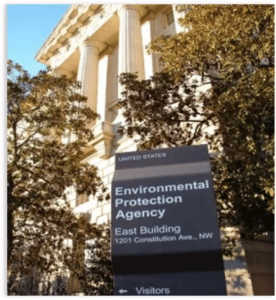ASDWA Takes Neutral Position on EPA’s Proposal to Designate PFOA and PFOS as Hazardous Substances
 On November 7, ASDWA provided comments to EPA in response to the Agency’s proposal to designate PFOA and PFOS to designate PFOA and PFOS as hazardous substances under the Comprehensive Environmental Response, Compensation, and Liability Act (CERCLA), also known as “Superfund.”
On November 7, ASDWA provided comments to EPA in response to the Agency’s proposal to designate PFOA and PFOS to designate PFOA and PFOS as hazardous substances under the Comprehensive Environmental Response, Compensation, and Liability Act (CERCLA), also known as “Superfund.”
ASDWA supported the overall intent of the action as it would open pathways to hold polluters accountable but opted to take a neutral position on the proposal due to “several cross-media consequences.” ASDWA’s letter outlined numerous “pitfalls” associated with the proposal. ASDWA argued that CERCLA is not the appropriate regulatory tool to address PFAS contamination, stating, “CERCLA was designed to be used to address problematic sites and facilities, where there is an identifiable plume impacting groundwater, or some other type of specific source, not a problematic class of chemicals that is found everywhere.” Additionally, ASDWA’s comments highlighted the need for the Agency to ensure adequate coordination between EPA’s Office of Land and Emergency Management (OLEM) and other EPA offices. ASDWA noted that EPA’s Office of Water (OW) is working on a proposal to regulate PFOA and PFOS under the Safe Drinking Water Act and that the impact of this designation on the drinking water rulemaking must be considered. ASDWA’s letter urges OLEM and OW to work together to ensure these two rulemakings work in tandem.
ASDWA outlined additional concerns, including that:
- EPA has been chronically underfunded and has insufficient staff and resources to undertake the full remediation process, including assessment, characterization, and cleanup of each site.
- The process of holding polluters accountable under CERCLA has historically taken too long. ASDWA’s comments recommended that the Agency find ways to streamline the process.
- The process of finding responsible parties is difficult for many water systems with low-level PFAS detections that are untraceable to a specific source. ASDWA’s letter requested that EPA provide additional guidance on how this new CERCLA designation could be used in such situations.

